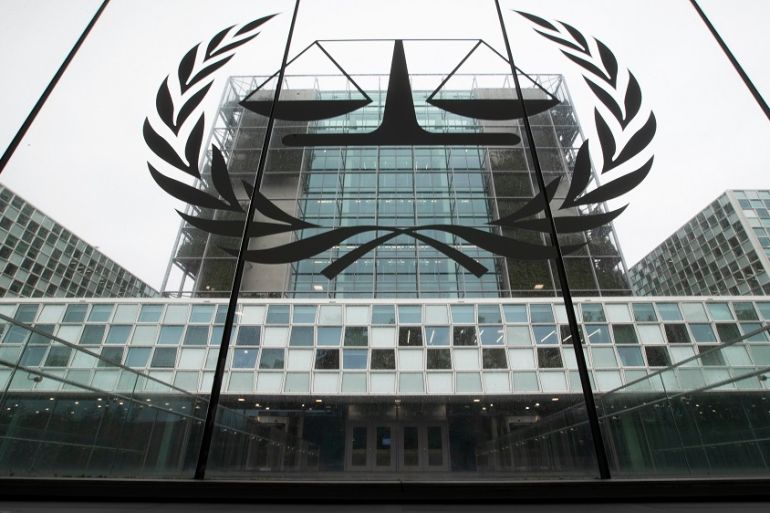Central African Republic war crimes suspect appears at ICC
Seleka armed group commander Mahamat Said Abdel Kani accused of crimes against humanity and war crimes.

A Central African Republic war crimes suspect made his first appearance at the International Criminal Court (ICC) on Friday after being handed over to the Hague-based tribunal.
Mahamat Said Abdel Kani, 50, an alleged leader of the Seleka, an armed group drawn largely from the Muslim minority, was surrendered to the custody of the ICC on Sunday by CAR authorities.
Keep reading
list of 3 itemsCentral African Republic gov’t says forces killed 44 rebels
CAR post-election violence displaces more than 200,000 people: UN
Said faces accusations of committing crimes against humanity and war crimes, including torture, persecution, cruel treatment and enforced disappearances.
The Central African Republic has been mired in violence since Seleka, or “alliance” in the Sango language, seized power in March 2013.
Their brutal rule gave rise to the opposing “Anti-balaka” Christian militias, several of whose former leaders also face charges at the ICC.
Defence lawyer Jean Pierre Madoukou told judges at his client’s first court appearance that Said intends to prove his innocence in court.
“I can say clearly that [the] truth will come out in favour of Mister Said based on everything we have at our disposal,” Madoukou said.
Said, speaking via videolink from the ICC detention centre due to COVID-19 restrictions, did not comment on the accusations against him.
“I will be silent for now and I will express myself when the time comes,” Said told the presiding judge.
“I am not yet very fully informed of my rights. I am aware that as a suspect I am presumed innocent,” he added.
Two other suspects in the violence in the Central African Republic are currently on trial at the ICC.
The ICC’s chief prosecutor Fatou Bensouda on Monday welcomed Said’s arrest but said she remained very concerned about the country’s volatile situation.
The arrest comes against the backdrop of fighting between the Central African Republic’s army – backed by United Nations and Russian and Rwandan troops – and fighters from armed groups who have now formed an alliance with the aim of seizing the capital and overturning a December 27 vote in which President Faustin-Archange Touadera was declared the winner.
The Central African Republic announced a 15-day emergency last week as armed groups tried to blockade the capital Bangui in a bid to topple Touadera.